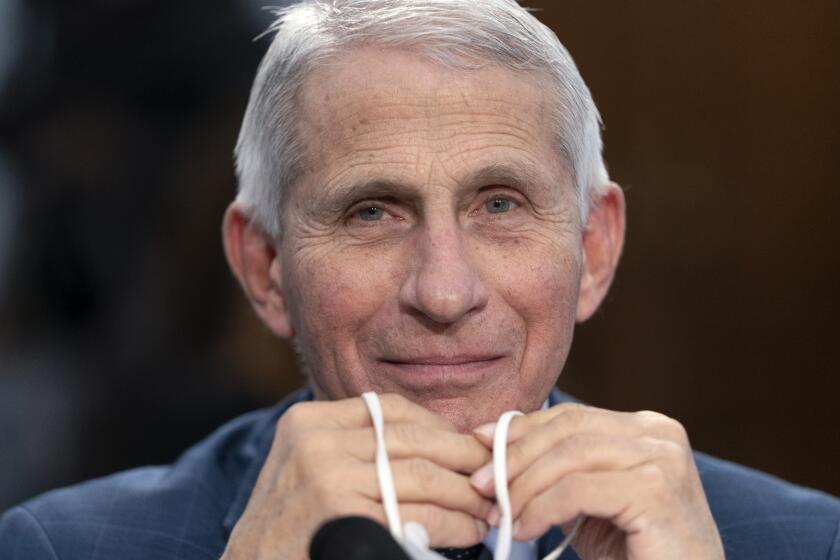Obituaries - March 25, 1999
Sir Michael Caine; Established Booker Fiction Prize
Sir Michael Caine, 71, who established Britain’s Booker Prize for fiction. The socially conscious businessman worked to establish the $32,000 prize in 1968 when he was an executive board member for the sugar company Booker PLC. Considered Britain’s highest literary honor, the Booker Prize has been awarded to such novelists as Salman Rushdie, Iris Murdoch, Ian McEwan and Peter Carey. Born in Hong Kong, Caine was the son of Sir Sydney Caine, director of the London School of Economics and a colonial civil servant. The younger Caine was educated at Oxford University and George Washington University in the United States. He worked for the British Embassy in Washington and in 1952 joined Booker. He worked for the company in Guyana, Trinidad and southern Africa, and helped diversify it to handle a variety of products. Caine served as Booker’s chief executive from 1975 to 1979 and then as chairman until he retired in 1993. He was knighted in 1988. On Saturday in London of cancer.
Louise M. Darling; Founded UCLA Biomedical Library
Louise M. Darling, 87, founding librarian of the UCLA biomedical library that is now named for her. Darling earned bachelor’s and master’s degrees in botany from UCLA and studied library science at UC Berkeley. She was serving in the Army Library Service in the Philippines in 1947 when she was invited to create a biomedical library at UCLA. She retired in 1978 after three decades of building the library’s major collections and innovating services. Renamed in her honor in 1987, the library has about half a million volumes used by faculty, staff and students of medicine, public health, nursing, dentistry, biology, microbiology and the medical center. She created and was co-director of the Brain Information Service in 1964; established the graduate training program in medical librarianship in 1960, and was its director until 1974; and was founding director of the Pacific Southwest Regional Medical Library Service in 1969. Darling served as president of the Medical Library Assn. and received many awards from UCLA and her profession. On Sunday in Los Angeles.
Roy Lee Johnson; Admiral During Gulf of Tonkin Incident
Roy Lee Johnson, 93, Navy admiral who commanded the Pacific Fleet during a critical period in the Vietnam War. Johnson retired from the Navy in 1967 after three years as commander in chief of the 450-ship Pacific Fleet. In August 1964, he played a key role in what became known as the Gulf of Tonkin incident, which prompted President Lyndon B. Johnson to escalate American involvement in the war. Johnson gave the orders to the U.S. destroyers Maddox and C. Turner Joy to return fire after they were reportedly attacked by North Vietnamese gunboats in the Gulf of Tonkin. Earlier in his career, the admiral was the Navy’s senior representative in determining U.S. air strike priorities during the 1962 Cuban missile crisis. Born in Big Bend, La., Johnson graduated from the Naval Academy in 1929 and became a naval aviator three years later. During World War II, he was an air group commander and executive officer aboard the aircraft carrier Hornet in the Pacific. During the Korean War, he commanded the escort carrier Badoeng Strait and was in combat operations. In 1955, Johnson became commanding officer of the attack aircraft carrier Forrestal. In retirement, he was president of the Early and Pioneer Naval Aviators Assn. and the Naval Academy Alumni Assn. He was also a founding trustee of the USS Forrestal Memorial Education Foundation. On Saturday in Virginia Beach, Va.
Bruce MacDonell; TV News Director, Producer
Bruce MacDonell, 60, network television news director and producer. The winner of four Emmy Awards, he began his career in 1959 as head writer for CBS’ “Showtime.” In 1968, he became news director of Los Angeles radio station KFWB-AM (980) and later executive producer of KNBC News. For many years, MacDonell was general manager for NBC in Asia and the Pacific, including a critical period when two newsmen were slain during a coup attempt in Bangkok, Thailand. In 1986, he left the network to form Globe Net Productions, producing news and documentary programs in Japan for such clients as “The MacNeil / Lehrer NewsHour,” “The Christian Science Monitor Report” and “Entertainment Tonight.” He also produced the critically acclaimed “Asia Now,” a weekly magazine program shown in the U.S. on PBS. In Japan, MacDonell served as president of the Foreign Correspondents Club. Last year, he returned to Los Angeles as weekend supervising producer of the television program “Extra.” On Friday in Burbank after a brief illness.
James McMillan; Helped Integrate Las Vegas
James McMillan, 82, who led the fight to integrate Las Vegas and its casino industry four decades ago. McMillan, a dentist who served several terms as head of the Las Vegas chapter of the NAACP, was best known for his battle with the city’s white establishment. In 1960, when top black entertainers headlined at Strip hotels but were not permitted to stay in them, McMillan sent a letter to Nevada business and civic leaders threatening a massive march if segregated resorts failed to end racist policies. The letter prompted death threats, and McMillan’s friends, armed with shotguns, kept a protective vigil around his house. Two major white leaders, then-Nevada Gov. Grant Sawyer and the late Las Vegas Sun publisher Hank Greenspun, supported McMillan. The casino industry soon agreed to integration, avoiding the march. Raised in Mississippi, where he noted recently “they used to hang black folks,” McMillan was the first black to play on the University of Detroit’s football team. He served in the Army Dental Corps in China, Burma and India during World War II, and in 1953 became Nevada’s first licensed black dentist. In the 1970s, McMillan was appointed to the Nevada State Board of Dental Examiners, and in the mid-1990s he was elected to the Clark County school board. On Saturday in Las Vegas of cancer.
G. Donald Montgomery; USC Dental School Benefactor
G. Donald Montgomery, 97, Beverly Hills dentist and benefactor of the USC Dental School. In practice for more than half a century, Montgomery counted many Hollywood stars among his patients, including Phyllis Diller, James Arness, Shirley MacLaine, Ricardo Montalban, Gregory Peck and Kirk Douglas. A 1925 graduate of the USC Dental School, Montgomery gave his alma mater more than $5 million in scholarships, equipment and most recently a mobile dental unit that provides free dental care for the poor. He also paid for renovation of the school’s third floor as a memorial to his son. Already the dental facility’s largest donor, Montgomery has willed much of his estate to the school. On Saturday in Laguna Hills.
David Nowinson; Newsman Wrote for Radio, TV, Magazines
David Nowinson, 88, Los Angeles newsman who wrote for radio, television and magazines. A native of Chicago and graduate of Northwestern University, Nowinson moved to Los Angeles in the 1930s to become head writer and publicity director for KFI radio. He wrote scripts for such news feature series as “Cabbages and Kings” and “Mr. President.” He went on to write for television stations KTTV Channel 11 and--for more than 25 years--KABC Channel 7. In addition to news, he wrote scripts for hundreds of radio and television programs ranging from variety shows to quiz shows to “The Lone Ranger.” Throughout his electronic media career, he also wrote for print publications, including the detective magazine the Shadow, the grammar journal Better English and Environmental News magazine. He also created a pictorial “You Solve the Crime” series for Chicago newspapers, which Look magazine took over as “Photocrime” in the 1940s. On Friday in Santa Monica.
Michael Stewart; Music Publishing Executive
Michael Stewart, 70, major international music publishing executive. The Baltimore-born Stewart acted in his youth and earned a degree in aeronautical engineering at Johns Hopkins University. But working in New York, he fell in love with music by frequenting Tin Pan Alley. Stewart worked as an artists’ manager and record producer and in the 1950s set up two music publishing companies, Korwin Music and Dominion Music. Among the hits he published were “Chances Are,” “Moments to Remember” and “Never on Sunday.” In 1962, he sold his publishing interests to United Artists and joined the company to establish and head its music division, UA Music Group. As vice president of the film division, Stewart also supervised about 300 film soundtracks, including those for “A Hard Day’s Night” and “Fiddler on the Roof.” After 15 years with UA, in which he negotiated the acquisition of MGM’s publishing division, Stewart left to form and serve as president of Interworld Music Group. In 1981, he became president of CBS Music Publishing, where he created CBS Songs and acquired the UA/MGM Publishing Cos. he had built. With his wife, Gabriella, Stewart formed the Eastern Epic film company in 1987 to make motion pictures in India for the Asian market. On Monday in Beverly Hills of cancer.
Jack Tarver; Atlanta Publisher, Head of AP
Jack Tarver, 82, a country editor who became publisher of Atlanta newspapers and chairman of Associated Press. Tarver began his career on the weekly Vidalia (Ga.) Advance at $15 a week in 1938 and a year later started the Toombs County Democrat. A humor column propelled him to bigger city dailies, first the Macon News and in 1943 the Atlanta Constitution. Reprinted in 40 newspapers, Tarver’s weekly humor column attracted attention for calling Rhett Butler of “Gone With the Wind” a cross between Jesse James and Little Boy Blue and saying Scarlett O’Hara was “as changeable as a baby’s underwear.” Tarver wrote a humor column for the Atlanta Constitution from 1943 until 1952, beginning by introducing himself: “I am, by way of background, a Georgian by birth, a Methodist through sprinkling, and a Roosevelt man out of obstinacy.” After the Constitution and Journal joined in 1950, Tarver was named assistant to the president of Atlanta Newspapers Inc., then general manager, vice president, president, and publisher from 1958 to 1976. He spent seven years as vice chairman of the parent company, Cox Enterprises Inc. From 1977 to 1983, Tarver also headed Associated Press, a cooperative news service among newspapers and broadcast groups around the world. He was elected head of the American Newspaper Publishers Assn. for 1976-77. On Sunday in Atlanta of a suspected heart attack.
More to Read
Sign up for our Book Club newsletter
Get the latest news, events and more from the Los Angeles Times Book Club, and help us get L.A. reading and talking.
You may occasionally receive promotional content from the Los Angeles Times.






